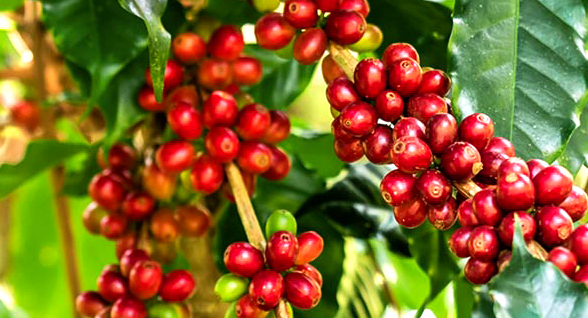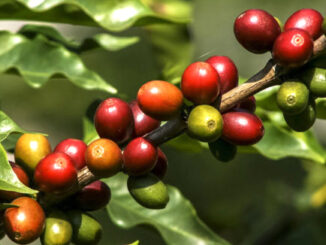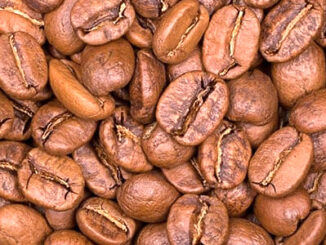
The Java coffee variety, classified as Coffea canephora var. robusta, is one of the world’s most renowned Robusta coffees.
Originating from the island of Java in Indonesia, this coffee has played a key role in shaping both the Robusta market and the global coffee trade.
With its bold flavor, full body, and high resilience, Java Robusta continues to be a cornerstone of coffee cultivation across Southeast Asia and beyond.
🌍 Historical Background
The island of Java, part of the Indonesian archipelago, has been synonymous with coffee for over three centuries.
Coffee was first introduced to Java by the Dutch in the late 1600s, using Arabica plants from Yemen.
However, in the late 19th century, a devastating outbreak of coffee leaf rust (Hemileia vastatrix) destroyed nearly all Arabica plantations.
To recover production, farmers introduced Coffea canephora (Robusta) from Congo and Uganda — a species far more resistant to diseases and tropical heat.
By the early 1900s, Java Robusta had become the backbone of Indonesia’s coffee industry — strong, productive, and ideal for the region’s lowland climate.
🌿 Botanical Characteristics
Coffea canephora var. robusta (Java type) displays the classic traits of the Robusta species but with some local adaptations.
Plant features:
- Tree height: 3–5 meters
- Leaves: Broad, deep green, and shiny
- Cherries: Round and uniform
- Beans: Small, round, and dense with a straight central crease
- Root system: Deep and fibrous, allowing drought tolerance
- Growth habit: Upright and vigorous, suitable for dense planting
Java Robusta is prized for its high yield and disease resistance, which make it a reliable crop even under challenging tropical conditions.
☕ Flavor Profile
The Java Robusta coffee is known for its strong, earthy flavor and thick body, characteristics that make it a favorite in espresso blends.
Typical tasting notes:
- Heavy body
- Low acidity
- Bold, bitter-sweet taste
- Notes of dark chocolate, nuts, wood, and spice
- Subtle smoky or earthy undertones
While it lacks the complexity of Arabica, Java Robusta provides depth, strength, and crema — essential qualities for espresso and instant coffee.
🌱 Growing Conditions
The Java variety thrives in tropical lowlands and mid-elevation regions, especially in humid climates with rich volcanic soil.
Ideal growing conditions:
- Altitude: 200–800 meters
- Temperature: 22–30°C
- Rainfall: 1,500–2,500 mm annually
- Soil: Volcanic and well-drained
- Shade: Moderate shade preferred
These conditions, combined with Java’s fertile soil, contribute to the coffee’s deep, earthy, and full-bodied taste.
🌾 Agricultural Advantages
✅ High yield and productivity
✅ Strong resistance to leaf rust and pests
✅ Adaptability to lowland tropical climates
✅ Tolerant of heat, humidity, and irregular rainfall
✅ Low maintenance cost
✅ Ideal for intercropping with bananas, coconuts, or cocoa
Because of these advantages, the Java Robusta variety became the foundation of modern Robusta cultivation across Indonesia, Vietnam, and Africa.
⚠️ Challenges in Cultivation
❌ Flavor is less refined than Arabica — often considered too strong for specialty markets
❌ Tall trees can be harder to harvest manually
❌ Requires careful processing to avoid bitterness
❌ Sensitive to long drought periods without irrigation
Proper post-harvest drying and roasting are essential to bring out its sweetness and nutty notes while minimizing harshness.
🧬 Genetic Relationships and Derivatives
The Java Robusta variety belongs to the Coffea canephora species, which includes several natural and bred lines such as:
- Nganda group – native to West Africa, known for spreading branches and large cherries
- Erecta group – upright-growing Robusta, ideal for commercial plantations
Java Robusta forms the genetic foundation for several important modern hybrids, including:
- Indian Robusta Clones (CxR, S.274) – combining Java Robusta vigor with Arabica flavor
- Vietnamese Robusta lines – selected from Java introductions for local adaptation
- Arabusta hybrids – crossings of Arabica and Java Robusta for resilience
☕ Java Coffee vs. “Java Arabica”
It’s important to note that “Java coffee” can refer to two distinct types:
- Java Arabica – highland coffee grown on volcanic plateaus, smoother and more aromatic.
- Java Robusta – lowland variety (Coffea canephora var. robusta), strong and full-bodied.
Both are authentic Indonesian coffees, but Java Robusta remains the backbone of mass production due to its resilience and yield.
🌍 Main Producing Regions
The Java Robusta variety is widely grown across Indonesia and has been exported to other tropical regions.
Main cultivation areas include:
- East Java (especially Jember and Malang)
- Sumatra
- Sulawesi
- Vietnam (as part of local Robusta hybrids)
- India and Uganda (introduced for climate adaptation)
Indonesia remains one of the top five Robusta-producing countries in the world.
❤️ Final Thoughts
The Java coffee variety (Coffea canephora var. robusta) represents strength, tradition, and adaptability.
It may not offer the delicate balance of Arabica, but its bold character, deep flavor, and unmatched resilience make it essential to the global coffee industry.
From the volcanic soils of Indonesia to espresso cups worldwide, Java Robusta continues to embody the spirit of hardiness and heritage.
☕ Java coffee — powerful, earthy, and rooted in history.
DeliciousPath: Enjoyment in Every Moment
Explore the Gourmet on Board category for exquisite flavors that elevate your meals, even when you’re on a boat, and the Coffee category for aromatic coffee blends that make every moment special. DeliciousPath is here to turn every experience into something unforgettable!
























